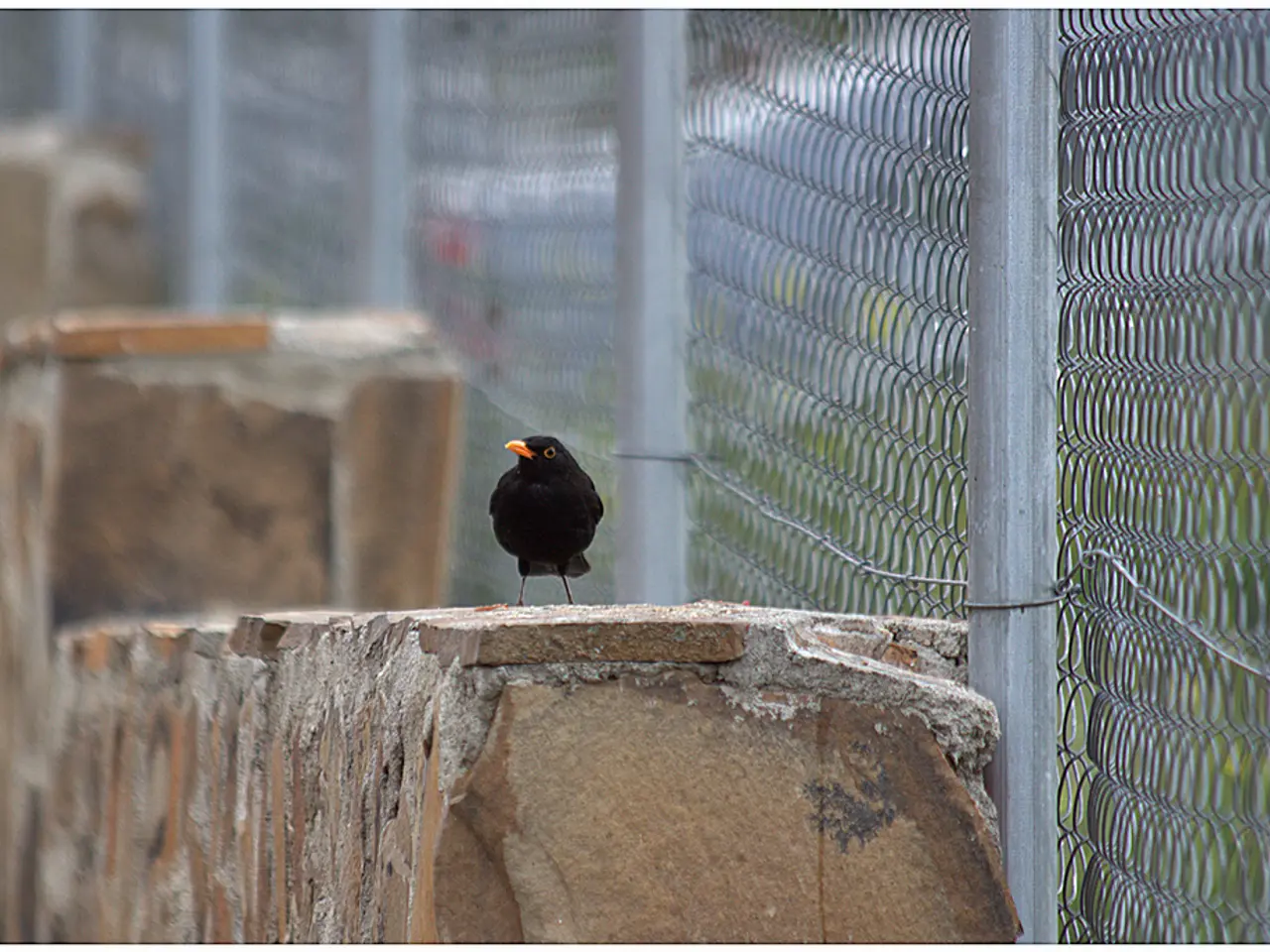Could bird feeders be causing harm to garden birds?
In the heart of a lively garden, a symphony of feathers, chirps, and fluttering wings creates a captivating scene. However, this delightful spectacle could potentially harbour hidden dangers, as the act of having a garden filled with birds feasting, drinking, and bathing can potentially spread diseases. To ensure a safe and healthy environment for our garden avian friends, it's essential to follow expert guidelines on cleaning bird feeders, bird tables, and bird baths.
Firstly, let's discuss the cleaning of bird feeders and bird tables. A regular and effective cleaning routine is crucial to avoid the spread of disease. At least every two weeks, clean feeders, increasing to weekly during wet weather or heavy bird traffic to reduce disease risk. Empty old seed and debris, soak and scrub all parts, including feeding ports and perches, using warm soapy water or a solution of equal parts water and distilled white vinegar. Use a brush to remove mold, droppings, and seed hulls, rinse thoroughly, and allow feeders to dry completely before refilling. Removing old debris from beneath feeders regularly is also recommended to deter pests and disease buildup.
Secondly, let's talk about bird baths. Thoroughly clean bird baths every 2 to 4 days; check more frequently during warm weather. Empty the bath and scrub with a soft-bristle brush or sponge, using a mild vinegar solution or a weak bleach solution (one part bleach to ten parts water) for algae and bacteria removal. Rinse very well to ensure no bleach remains, and let the bath dry in full sun when possible to kill pathogens and dry up algae. Removing bird droppings, feathers, food remnants, leaves, and other debris daily is also crucial to maintain sanitary conditions and avoid algae build-up.
Lastly, it's essential to consider general hygiene and disease prevention. Regular cleaning minimizes the spread of diseases such as avian influenza and other pathogens common in communal feeding and watering areas. Avoid cross-contamination by washing hands before and after cleaning feeders or bird baths. If you have poultry, keep their feed and water separate from wild birds’ sources and consider removing wild bird feeders near poultry to reduce transmission risk.
By following these cleaning schedules and methods, you can maintain a safe and healthy environment for wild garden birds and reduce the likelihood of disease spread. In doing so, you're not only contributing to the well-being of our feathered friends but also ensuring that your garden remains a sanctuary for them to thrive in.
[1] RSPB (2021) How to clean your bird feeder. Available at: https://www.rspb.org.uk/birdwatch/how-to-help-birds/feed-birds/how-to-clean-your-bird-feeder/ [2] RSPB (2021) How to clean a bird bath. Available at: https://www.rspb.org.uk/birdwatch/how-to-help-birds/feed-birds/how-to-clean-a-bird-bath/ [3] RSPB (2021) How to keep your bird table clean. Available at: https://www.rspb.org.uk/birdwatch/how-to-help-birds/feed-birds/how-to-keep-your-bird-table-clean/ [4] Defra (2020) Avian Influenza: Preventing the spread of disease in wild birds. Available at: https://www.gov.uk/guidance/avian-influenza-bird-flu#avian-influenza-prevention-zones
- Maintaining a clean garden environment not only benefits the health and wellness of our feathered friends but also promotes fitness and exercise, as clean bird feeders, bird tables, and bird baths encourage birds to visit.
- A regular cleaning schedule for bird feeders, bird tables, and bird baths is substantial in practicing gardening science, as it helps prevent the spread of diseases such as avian influenza and other pathogens, ensuring the health of our garden birds.
- By adhering to expert guidelines on cleaning bird-related items, we contribute to our garden's nutrition by providing clean water and food for wild birds, promoting a thriving ecosystem within our gardens.
- Embracing a routine of cleaning bird feeders, bird tables, and bird baths can have a broader impact on our immediate environment, helping to ensure that our gardening practices are both healthy and eco-friendly.




